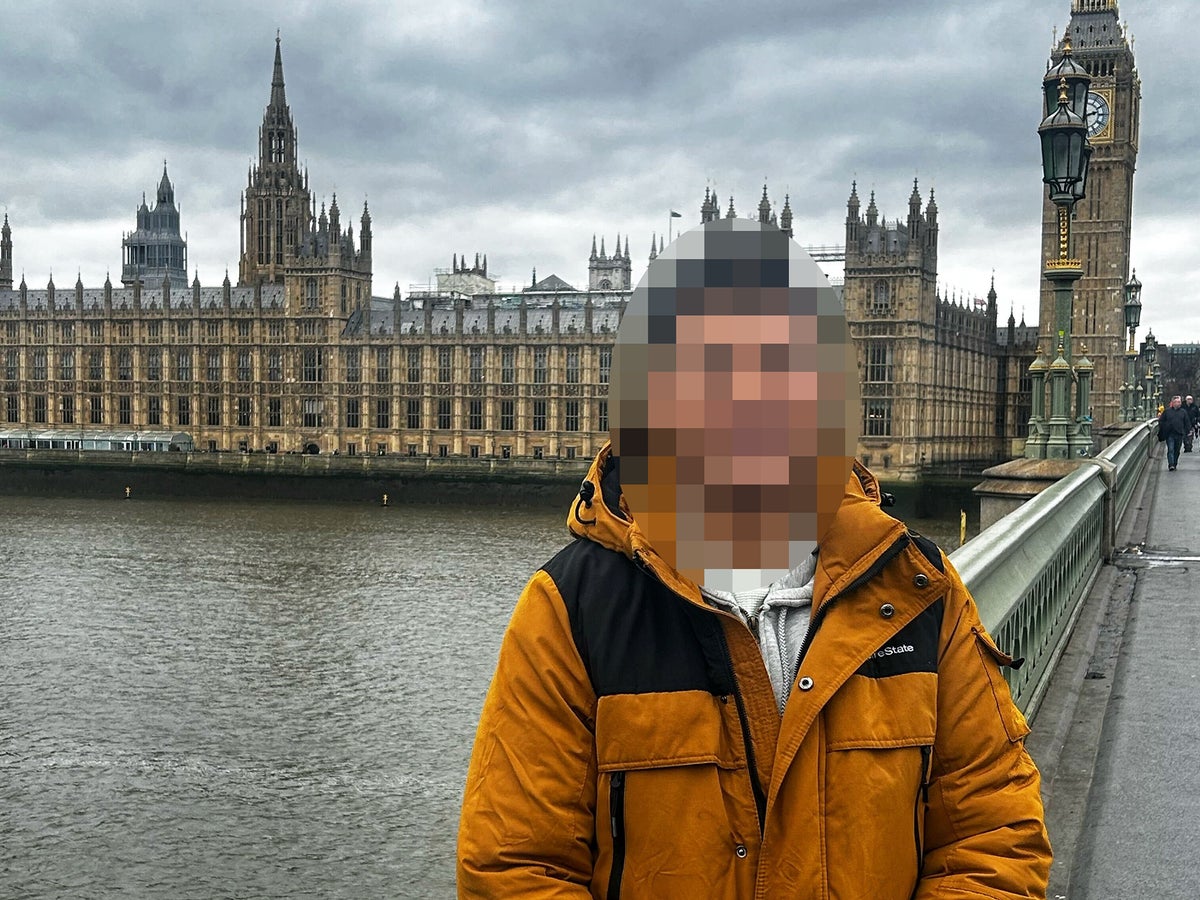
The Afghan war hero threatened with deportation to Rwanda has told how his wife begged him to flee and leave her behind while he made his perilous journey across five countries to reach the UK.
The pilot, who served with distinction alongside British forces, spent months travelling by car, truck and boat to get to Europe, paying thousands of pounds to smugglers. His only possessions were his flight documents, proving his identity and the brave military career he had fought.
He is now facing rejection by the Home Office after arriving in Britain on a small boat because there was no safe and legal route to escape the Taliban.
The airman has appealed directly to Rishi Sunak and his cause has been backed by leading military figures and politicians including Labour leader Sir Keir Starmer who called his plight a “disgrace”.
The pilot, who is not named in order to protect his young family still in Afghanistan, said he was speaking out on their behalf: “All this that I am doing - I am doing it for them.”
In an interview with The Independent, the Afghan Air Force pilot told how:
- The British planned special missions, using the Afghan Air Force, to target drug producers funding terrorism
- As the Taliban regained control of the country, its rulers began a revenge assassination campaign against war pilots
- With nowhere to turn, his wife urged him to flee for his life, saying: ‘I put you into god’s hands’
- He paid 10,000 euros to a smuggler to get from Turkey to Italy, where the authorities threatened him with jail
- He crossed the Channel at dawn with training certificates clutched to his chest
The Independent has launched a petition calling for the UK to support Afghan war heroes who served alongside Britain
Praised by his coalition forces supervisor as a “patriot to his nation”, the pilot says he was forced into hiding when the Taliban took over Afghanistan in August 2021.
During the chaos of the Kabul evacuation, he and other members of his squadron were left behind. Recounting the fight against the Taliban, he described his final mission providing air cover for the Afghan army who were defending bases.
“I was on a mission for around a week protecting some of the army bases in a region that was under Taliban attack,” he said. “It was our role to go in and support them with air defence.
“Everyone knew that one day the American and British armies would leave as they had supported us for a long time. But when the withdrawal came, our territorial leaders failed us.”
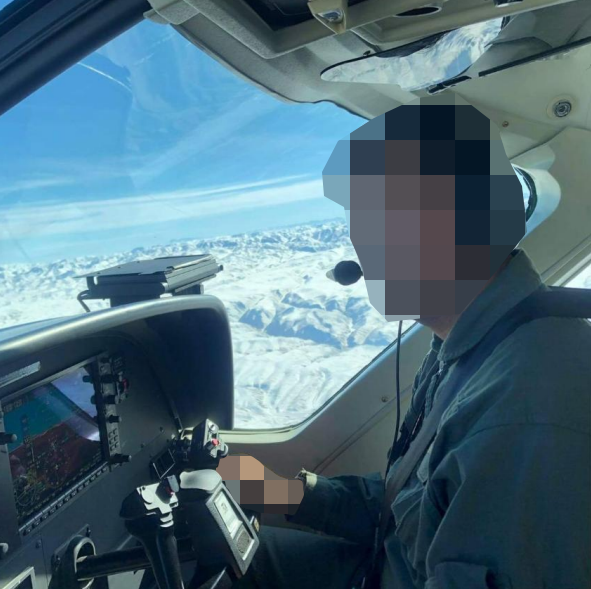
Describing his work with the coalition troops leading up to the withdrawal, the veteran recounted: “Mostly we flew at night. The British would plan special missions and they would use the Afghan Special Force and the Afghan Air Force.
“The missions were supported by the British and would mainly involve fighting against drug production that was helping to fund the terrorist groups. My responsibility was supporting the ground force and helping them evacuate.”
In the days leading up to the fall of Kabul, the airman hoped Afghanistan’s leaders would reach a solution. When a friend called him on 15 August and told him he needed to go to the airport, he didn’t take the warning seriously. Only an hour later, when the friend called again, did the airman realise what was happening.
By that time the streets were packed with cars as people desperately tried to flee and he had missed his chance. The months that followed were fraught with fear and threatening phone calls from unknown numbers as the Taliban sought revenge on anyone who had served the fallen government.
Address and telephone numbers of Afghan Air Force pilots had been left in their offices for the Taliban to find. After months waiting for help and living in hiding, he made the decision to flee to Iran with his wife.
“There wasn’t any specific safe or legal route or some specific website for us to use. It was impossible in Afghanistan, it is completely impossible.
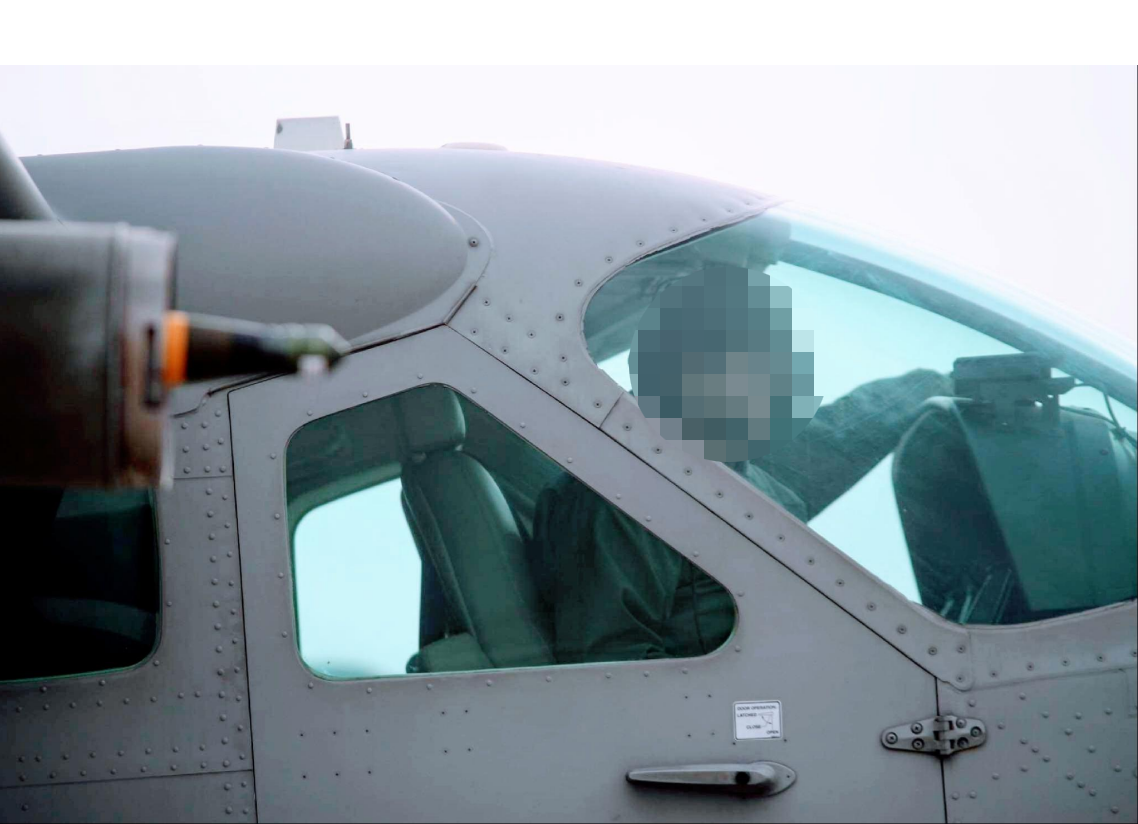
“Fortunately, we still had our passports and we were able to pay some smugglers to get an Iranian visa for us.
“We had a three-month visa in Iran and after two and a half months we went to the immigration police to try and get it updated. When we explained our situation, the soldier’s attitude was very bad.
“He told me: ‘Even if you are the president of Afghanistan, you are nothing here. Go directly back to Afghanistan or I will tear up your passport’. We were arguing and then his commander came and he was smiling as he was talking.
“He told me there is one way – to join the Iranian army. At this, my wife just told me ‘Let’s go’. We came back to where we were staying and that night we talked a lot. We spent hours discussing what we should do.
“Finally she told me: ‘We don’t have any ways that I can come. God bless you, God save you, I put you into his hands. Go.’”
The next morning, the pilot made arrangements to leave Iran illegally and began a journey that would eventually take him to Dover. It began with paying a smuggler $1,500 for travel from Tehran to Istanbul.
He explained: “When we arrived at the border there was a house and there were many refugees there. We told the smugglers from the first day – you have to take us to Turkey by car. The smuggler was lying and had planned to take us through the mountains because it costs less and they don’t need to pay bribes to the police this way.
“I was arguing with them, saying they had promised to take us by road and one of the smugglers slapped me. That was a very difficult moment. Finally we hid in a big truck and in February 2022 I made the crossing.”
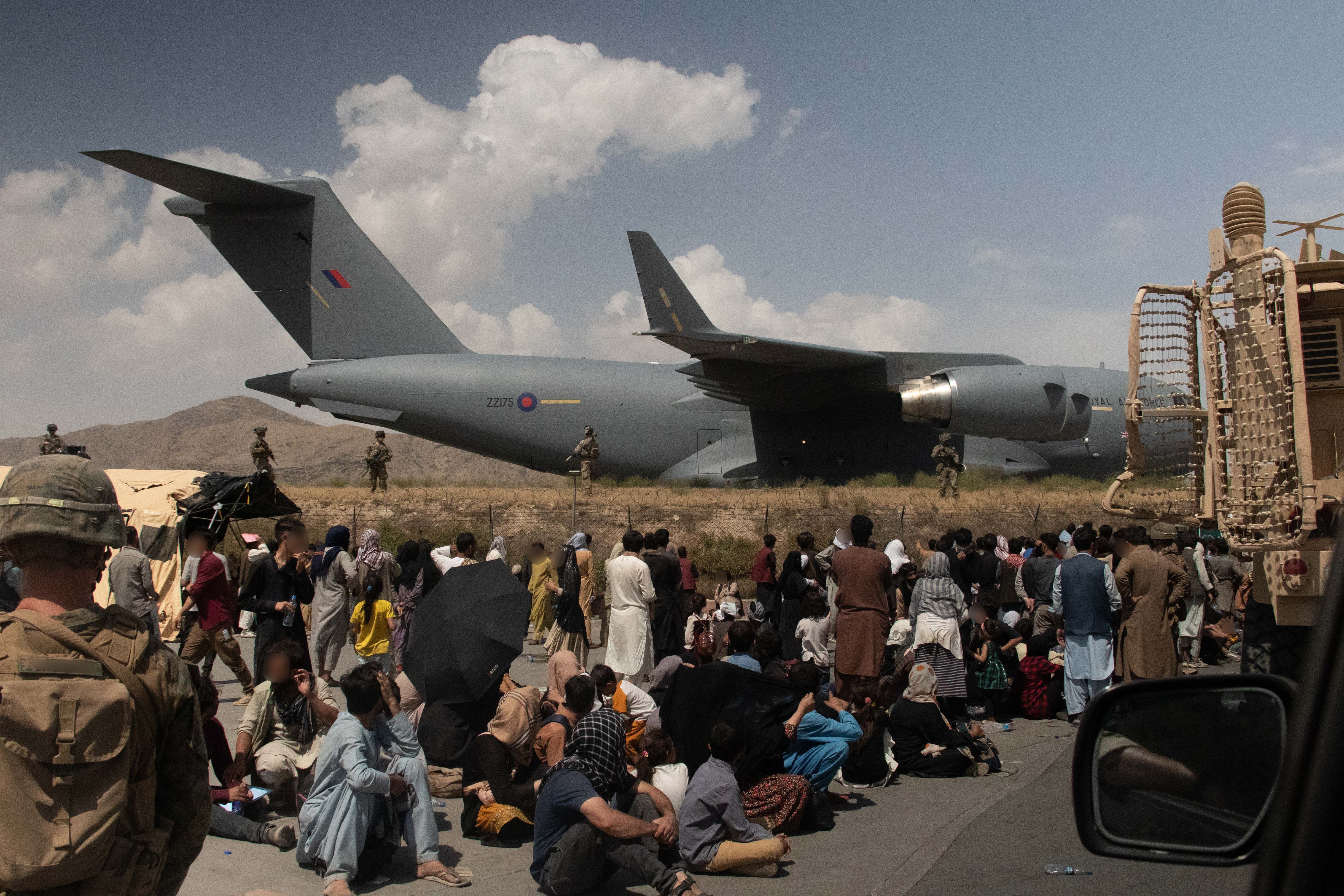
In Istanbul, the airman was able to borrow money and scraped together 10,000 euros to pay a smuggler to take him onwards to Italy.
“I was five days and four nights inside the ship across the Mediterranean,” he said. “When we arrived in Italy, the police arrested us and put us in a very bad camp. The rooms, the beds were bad, and we were there for one week.
“After that they gave us a letter that said in seven days you have to leave Italy or face jail or a 10,000 euro fine.”
He went to another European country and tried to claim asylum there. After four months he received a rejection letter and it was then that he knew he had to come to the UK.
“I had to make a decision,” he said. “I thought because of my background, because I had worked with the British forces, that they would help.
“Maybe I thought in my mind, if some of the army personnel who served in Afghanistan – if I can meet with them – they will help me.”
Let us know your opinion in the poll below
Sitting with his stained flight training certificates in front of him, he recalled how he clutched his documents to his chest to protect them from the elements on his boat journey across the Channel.
He said: “I came to Calais and was there for two nights; one night in a tent and one night near to the sea. It was very hard. I knew that I was playing with my life, as I had done when I had departed Turkey for Italy.
“We crossed the Channel at around 5am and we arrived in Dover at around 10am. It was a freezing cold day in November, I was completely soaked through and there were 30 or more people on the boat.
“I thought we had avoided the worst of the bad conditions and I remember when the police came to pick us up out of the boat, that was when the really bad weather started.”
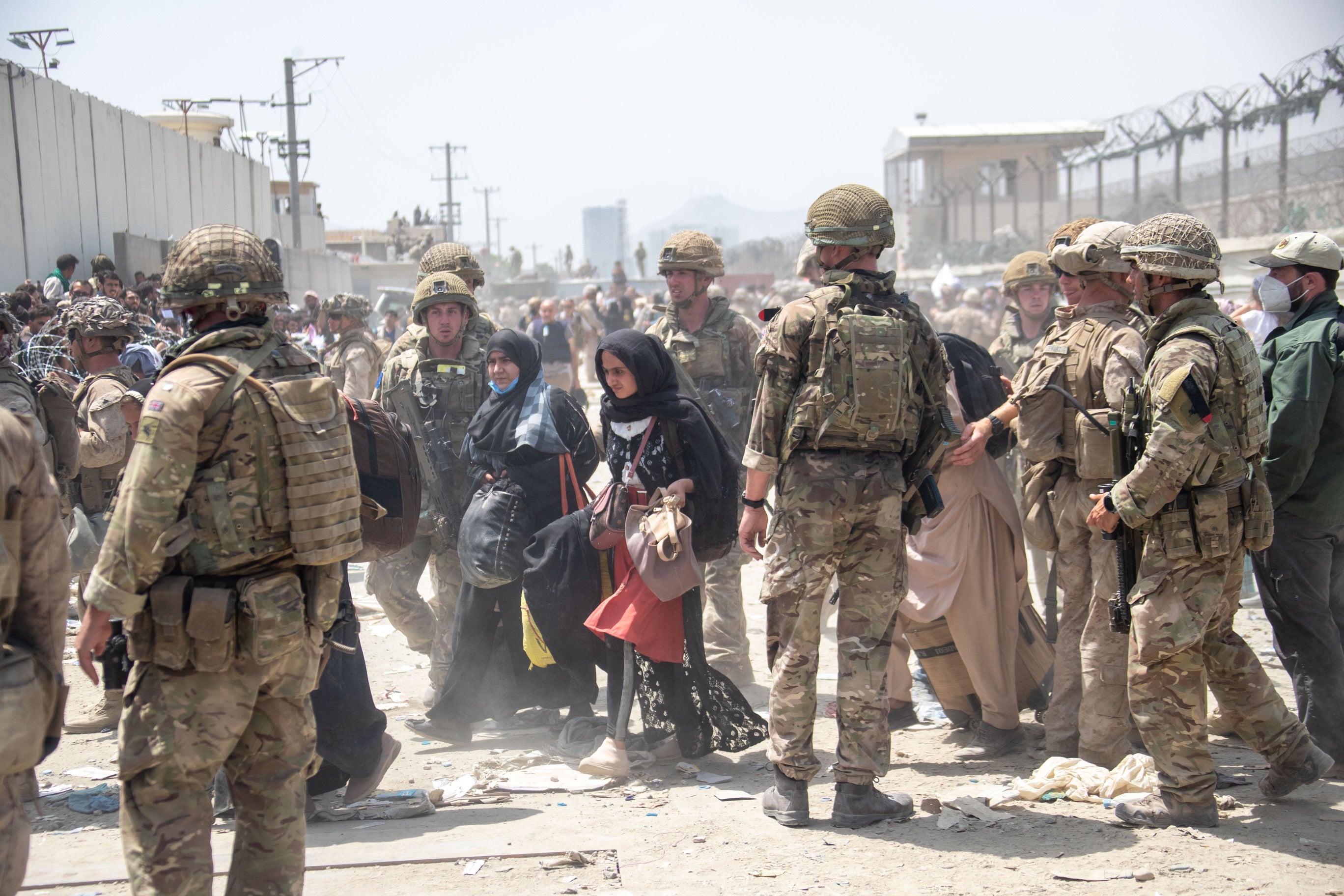
The man is now living in a hotel now used by the Home Office and said he spends most of his day sitting alone and thinking in his room. A few times a week he is able to go to a language class to improve his English and although he has seen the support for his case, he still feels “very hopeless”.
“Instead of helping me, they sent me a Rwanda letter,” he said. “How can they accept my family if they want to send me away?
“The British instead of helping their colleagues, they rescued dogs and cats. Many many Afghan interpreters, journalists, and army personnel have been left behind.”
As for his wife, she returned to Afghanistan, where she remains in hiding: “My wife is hardly living and it is difficult for her to go out. The Taliban has agents in the village and everyone knows that her husband was a pilot.”







